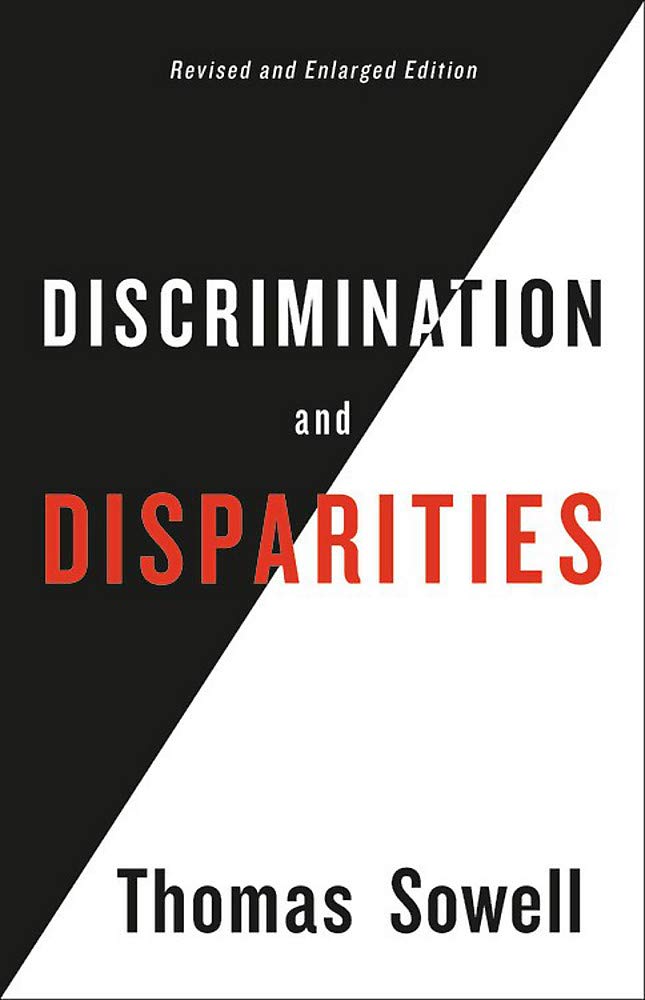A Brief Book Summary from Books At a Glance
By Benjamin Montoya
Editor’s Note: This “Bonus” Book Summary continues our series on culture. We hope our members are enjoying these “extra” summaries and the quick learning they afford.
About the Author
Thomas Sowell is a Senior Fellow at the Hoover Institution, Stanford University.
Introduction
Discrimination is a word that very common to describe disparities that exist between groups. What is discrimination? Did you realize the word can be used in two very different ways? It is ever possible for it to be a good thing? Does discrimination best explain disparities? And what is the larger significance of this entire discussion for the prevailing social vision of the day? This book will offer surprising answers to these questions and more.
Table of Contents
Chapter 1 Disparities and Prerequisites
Chapter 2 Discrimination: Meanings and Costs
Chapter 3 Sorting and Unsorting People
Chapter 4 The World of Numbers
Chapter 5 The World of Words
Chapter 6 Social Visions and Human Consequences
Chapter 7 Facts, Assumptions and Goals
Chapter 1: Disparities and Prerequisites
There is a common political argument today that represents a prevalent view that if economic benefits are not based solely on individual merit that there is justification for having politicians redistribute those benefits. This is one of the primary arguments of the political left. But is it true? Can this claim stand the test of evidence?
The primary difficulty that this argument faces is that it is far too simplistic. There has never been a time in history wherein people groups did not have disparities both within and without. Looking throughout history, one can find disparities in incomes related to what fields people enter into. This realization does not count as discrimination ipso facto. Sometimes this is related to the work put into the given field, but at other times, it can be due to geography. In other words, the matter is not so simple.
Consider also how people within the same household can experience economic differences not based on individual merit. One sibling is more intelligent than the other, enters a more prosperous field, and they make more money. Is it somehow fair that that individual was smarter than another and was able to make these kinds of gains? Certainly not. But herein lies a key point: if this disparity happens on such a small level, then why would we ever think we could control it on a larger scale?
There are other kinds of disparities in the world that are also out of our control. Do you know where 100% of the world’s tornadoes take place? In the US. Is that fair? Whether we like it or not, we have no control over the weather. This kind of bad weather happens partially due to the geographical location of the US, and there is nothing that anyone can do to prevent it. It is a natural disparity.
Disparities also occur among racial groups. One race, like the Jewish race, has been known for all kinds of achievements, but during the Industrial Revolution, they were not part of the gains made there. Does that mean there is necessarily a moral right and wrong to their lack of involvement? No. It is a disparity that it is out of our control.
All these issues are prerequisites for understanding this much larger issue that the rest of the book will consider in more detail.
Chapter 2: Discrimination: Meanings and Costs
In the media today, it is all too common to use a very broad definition of discrimination. The difficulty with a broader definition is that it paints in too broad of strokes. There is a good kind of discrimination and a bad kind of discrimination. We need to distinguish between the two so that we can consider what the bad kind is and what its real costs have been.
The first kind of discrimination is the more positive kind. It refers to making a distinction based on some kind of merit. For example, a wine connoisseur tastes different wines, and then discriminates between them. This can be referred to as Discrimination I. When an employer considers the merits of applicants and chooses one over the other based on their merits, this is Discrimination I. This kind of discrimination is necessary but must be careful not to engage in the second kind.
The second kind of discrimination is the negative kind. This kind of discrimination is what people typically mean. That is, some kind of discrimination based on a group, e.g., a young black boy must have criminal tendencies because he is black. This kind of discrimination is known as. . .
[To continue reading this summary, please see below....]The remainder of this article is premium content. Become a member to continue reading.
Already have an account? Sign In
